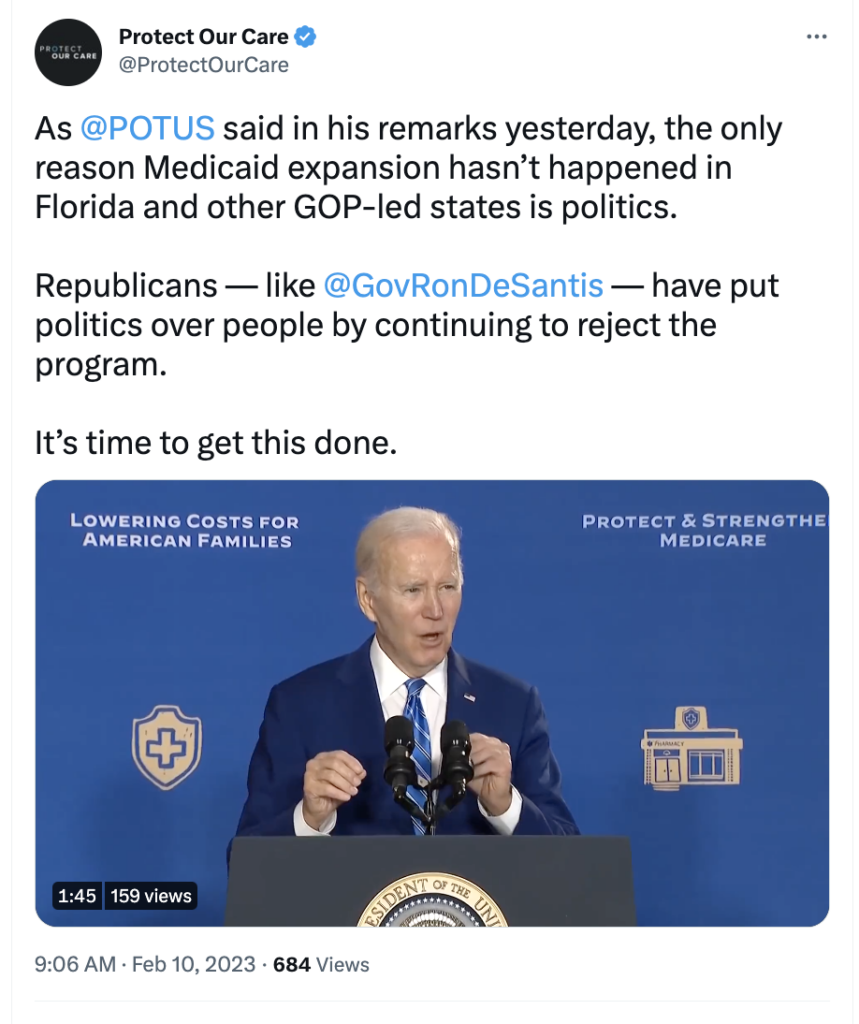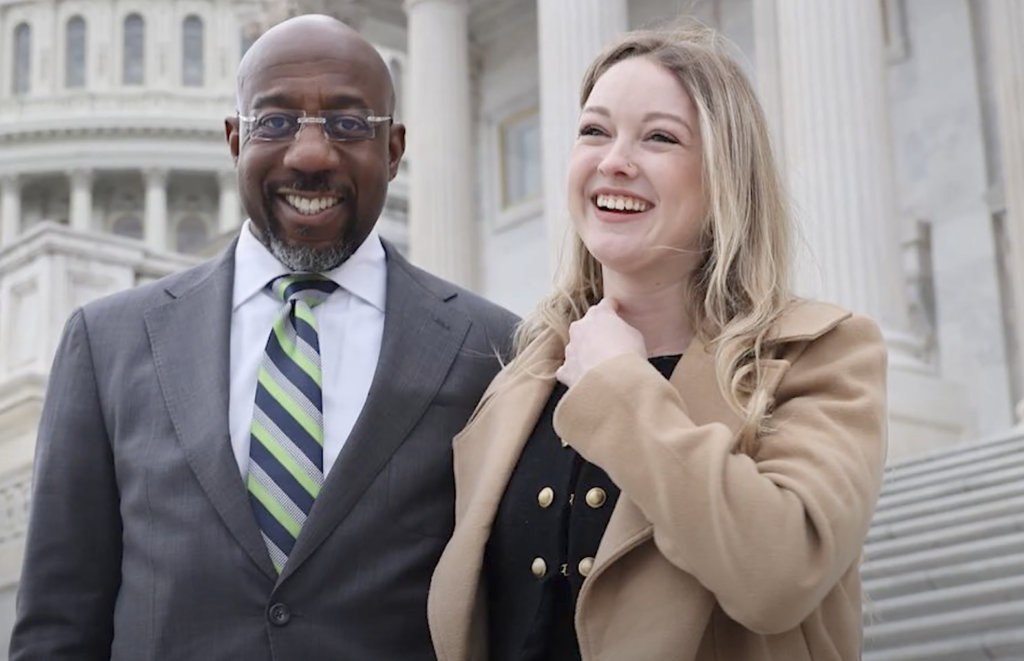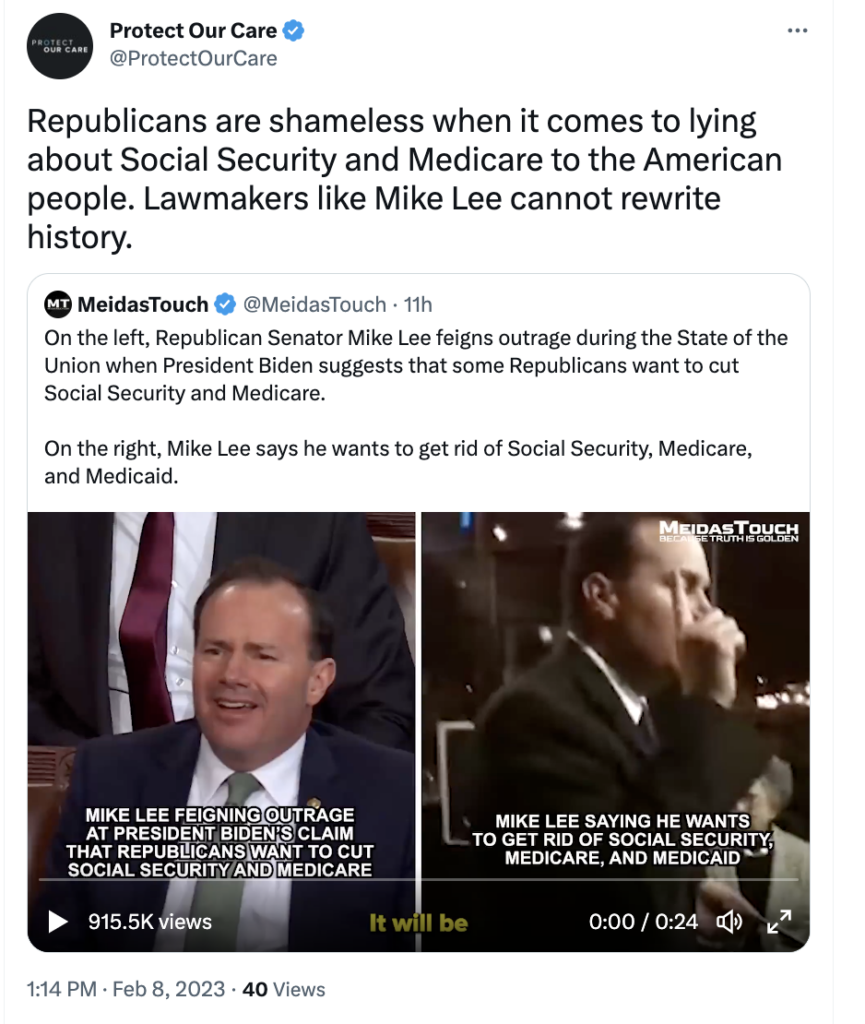This week we highlight accomplishments and expansions of highly successful services and programs dedicated to reducing disparities in the health care system as well as federal and state efforts to advance equity. Even with these achievements, new research on foster care, behavioral health services, maternal health, and LGBTQ+ care underscores there is still a long way to go in tackling systemic inequities and advancing health equity.
Protect Our Care is dedicated to making high-quality, affordable and equitable health care a right, and not a privilege, for everyone in America. We advocate for policies that lower health care costs and strengthen coverage, which are critical to expanding access to quality health care and, ultimately, achieving better health outcomes, particularly for people of color, rural Americans, LGBTQ+ individuals, people with disabilities, and more. Our strategies are driven by a broader commitment to tackling systemic inequities that persist due to racism and discrimination and the reality that multi-sector policies are needed to address basic conditions that affect health and related outcomes, particularly for marginalized communities.
INITIATIVES
Washington Post: FDA Eases Restrictions on Blood Donations for Gay and Bisexual Men. “Gay and bisexual men in monogamous relationships will no longer be forced to abstain from sex to donate blood under federal guidelines announced Friday, ending a vestige of the earliest days of the AIDS crisis. The proposed relaxation of restrictions by the Food and Drug Administration follows years of pressure by blood banks, the American Medical Association and LGBT rights organizations to abandon rules some experts say are outdated, homophobic and ineffective at keeping the nation’s blood supply safe. The new approach eliminates rules that target men who have sex with men and instead focuses on sexual behaviors by people, regardless of gender, that pose a higher risk of contracting and transmitting HIV. The FDA is expected to adopt the proposal after a period of public comment. Other countries including Canada and the United Kingdom have made similar changes in recent years. For decades, gay men said they were made to feel like pariahs as they were barred from performing a widely lauded act of community service, sidelined from joining friends and family giving blood after national disasters.” [Washington Post, 1/26/23]
CNN: Expanding Services for 988 Hotline Hope to Reach Out to Marginalized Groups “Since the summer launch of 988, more than 300,000 calls, texts and chats have come in each month. SAMHSA data on the new lifeline show that in December 2022 versus December 2021, calls answered increased by 48%, chats answered increased by 263% and texts answered increased by 1,445%. The 988 lifeline also has been testing a pilot program specifically for the LGBTQ+ community, in partnership with the Trevor Project, in which calls, texts or chats from LGBTQ+ youth have the option of being connected with counselors specially trained in LGBTQ-inclusive crisis care services. The pilot program began around the end of September, and ‘there has been a lot of demand and a lot of utilization of that service,’ [Dr. John] Palmieri said. He added that LGBTQ+ youth are at a higher risk of suicide. Since its launch, the 988 lifeline also has increased the number of call centers taking Spanish calls from a total of three to seven. Spanish language options will increase for text and chat messaging as well, Palmieri said.” [CNN, 1/19/23]
Wisconsin Examiner: Newly Released State Health Equity Report Calls for Changes Which Extend Outside of Health System. “A new report calls for Wisconsin to foster a corps of community health workers across the state, governed by a new set of professional standards and paid by the state’s Medicaid program. That is the lead proposal offered by the Governor’s Health Equity Council, which issued its final report Monday. The report includes a total of 20 recommendations. The first six directly focus on the state’s health care system and institutions, starting with creating a certification standard for community health workers and allowing them to be reimbursed under the Wisconsin Medicaid program. The report’s other proposals directly tied to health care include improving health care for pregnant women who are incarcerated, as well as policies to more broadly and completely share health data and to review maternal deaths. In addition, there are proposals that address economic conditions, such as increasing the minimum wage and expanding home ownership. There are also proposals to make the health equity council a permanent body, and to create a council on transgender health and safety that would provide training, technical support and analysis and recommendations across government agencies. The report anticipates opposition from some ideological quarters, although it does not lay out a specific plan for implementing its proposals.” [Wisconsin Examiner, 1/31/23]
Bloomberg: CDC New Institutional Shakeup Includes Creating an Office of Health Equity. “US public health chief Rochelle Walensky continued reconfiguring her agency to fight crises after stinging criticism of its pandemic response, hiring new leadership and creating new offices to address health equity and surveillance. Walensky is… forming an Office of Health Equity that will report to her team, according to the person, who asked not to be named discussing details that aren’t public. The organizational shake-up was guided by a monthslong internal review that identified cultural and organizational shortcomings in the agency’s response to the pandemic. Walensky’s advisers determined that CDC needed to share scientific findings and data faster, improve communications, strengthen relationships with federal, state and local partners, and ensure that the public-health workforce responds quickly to emergencies. Walensky also consolidated work done by two different centers into a new National Center for State, Tribal, Local and Territorial Public Health Infrastructure and Workforce.” [Bloomberg, 1/24/23]
CHALLENGES
The Daily Yonder: Over 100 Thousand Indigenous Americans Live in Mental Health Care Deserts. “More than 113,000 American Indians and Alaska Natives (AI/AN) live in 492 counties that lack mental health providers, according to a new report from GoodRx Research. Over 90% of these areas are in rural parts of the U.S., where healthcare resources are already limited, the report stated. ‘In fact, there are fewer than one psychiatrist or psychologist for every 30,000 people living in these counties,’ said Amanda Nguyen, a health economist at GoodRx Research. Nguyen said mental health access is lacking in the South Central, Midwest, and Alaska regions of the U.S.: These regions have the highest number of mental health care deserts, including Texas (30 mental health desert counties), Kansas (13), Oklahoma (8), Nebraska (8), and Alaska (7) have some of the highest numbers of mental health deserts. In addition to Alaska (11,171), South Dakota (14,650) has one of the highest numbers of AI/AN residents living in mental health deserts. The report also found that poor broadband access limits access to telehealth services, which could help with mental health resources. She said that the study found that counties with a higher population of AI/AN residents had a lower percentage of households with any form of broadband. For example, the vast majority of counties (94%) with 50% or more AI/AN residents – like Apache County in Arizona – have broadband access below the national average. Although most Indian Health Service (IHS) clinics and hospitals provide services at no cost to tribe members and are located on reservations, 87% of those who identify as AI/AN live outside of tribal areas, according to U.S. Census data.” [The Daily Yonder, 1/24/23]
Kaiser Health News: Children in Foster Care Experiencing Consistent Failures in Health Care. “Georgia’s designated health insurer for foster care, Amerigroup Community Care, had denied [a] boy [who had vocally contemplated suicide] placement in a psychiatric residential treatment facility, said Audrey Brannen, coordinator of complex care for Georgia’s child welfare agency. He stayed in a hotel for more than a month before receiving a temporary emergency placement in a foster home, she said. The boy and the other children staying in the hotels lacked permanent placements, Brannen said, and many weren’t getting help for their complex mental and behavioral needs. The frustration over gaps in care had gotten so bad that Candice Broce, commissioner of the Georgia Department of Human Services, sent a scathing six-page letter to the state Medicaid agency in August — signaling an unusual interagency conflict. She argued that Amerigroup, a unit of Elevance Health, isn’t being held accountable for failures in care, and that its foster care contract should not be renewed. Such problems extend beyond Georgia, according to Sandy Santana, executive director of the national advocacy group Children’s Rights. While foster care grabs headlines mainly in cases of abuse or neglect — even deaths — the failures of states and insurers in providing adequate health care for these children are widespread and occur largely without public scrutiny. Nearly all children in foster care are eligible for Medicaid, the state-federal program for those with low incomes, but states decide on the delivery mechanism. Georgia is among at least 10 states that have turned to managed-care companies to deliver specialized services exclusively for foster kids and others under state supervision. At least three more — North Carolina, New Mexico, and Oklahoma — are taking similar steps. But regardless of the structure, getting timely access to care for many of these vulnerable kids is a problem, Santana said.” [Kaiser Health News, 1/25/23]
U.S. News: Vast Disparities in Autism Care Continue to For Families Across the U.S. “Autism services are harder to find in many of the places where Black, Hispanic and Native American families live, new research shows. It’s known that there are racial disparities in U.S. families’ receipt of autism services — ranging from diagnosis and behavioral therapy to school and community programs. The new study highlights one reason: Those services are simply more scarce in the communities where Black, Hispanic and Native American families live. It also points to specific geographic regions in the United States where disparities are most stark. That could help in targeting resources to the areas in greatest need, according to the researchers. There are various approaches to helping kids with autism, including therapies that focus on certain behaviors or speech and language skills, as well as special education offered at schools. The earlier a young child is diagnosed and the sooner families can get those services, the better, [Dennis] Wall said. However, studies have found that compared with their white counterparts, minority children with autism are less likely to receive such services.” [U.S. News, 1/30/23]
AP: Maternal Deaths and Disparities Increase in Mississippi. “Deaths from pregnancy complications have become more prevalent in Mississippi, and racial disparities in the health of those who give birth have widened in recent years, according to a report released Thursday by the state’s Department of Health. The Mississippi Maternal Mortality Report shows that the maternal mortality rate increased by 8.8% between 2013‐2016 and 2017‐2019, with the latter period being the most recent one analyzed by researchers. Black, non-Hispanic women had a rate four times higher than white, non-Hispanic women. Meanwhile, the rate increased by 25% for Black women while falling 14% among white women. Of the maternal deaths directly related to pregnancy, 87.5% were determined to be preventable. The grim figures arrive as the state is expecting more births each year as a result of the U.S. Supreme Court decision last summer overturning the 1973 Roe v. Wade ruling, which had established a nationwide constitutional protection for abortion. The court used a Mississippi case to overturn the case, a legal effort the state’s leaders have lauded.” [AP, 1/26/23]
The Tennessean: New Report Highlights Disparities for LGBTQ+ Individuals in Tennessee. “Tennessee has begun a new legislative session and the state’s LGBTQ residents are bracing for impact.The General Assembly’s hostility towards its LGBTQ constituents has resulted in one of the most unsupportive legal systems in the country for LGBTQ people. However, for a long time, there has been limited research connecting LGBTQ Tennesseans’ experiences to state policy. A groundbreaking new report from the Southern Equality Research and Policy Center at the Campaign for Southern Equality and Campus Pride… takes a first step toward changing that. Regarding health and wellness, the situation for LGBTQ Tennesseans is dire. Unlike many other states in the country, Tennessee does not have legislation protecting LGBTQ individuals from discrimination in healthcare or insurance coverage. To make matters worse, Tennessee lawmakers have passed laws allowing healthcare providers to refuse service to LGBTQ individuals and criminalizing people living with HIV. Alarmingly, 58% of respondents reported experiencing suicidal thoughts within the past year, and 16% of respondents said they attempted suicide within the past year.This is far higher than the number of suicides attempted nationally; less than .01% of Americans attempt suicide each year.” [The Tennessean, 1/31/23]







